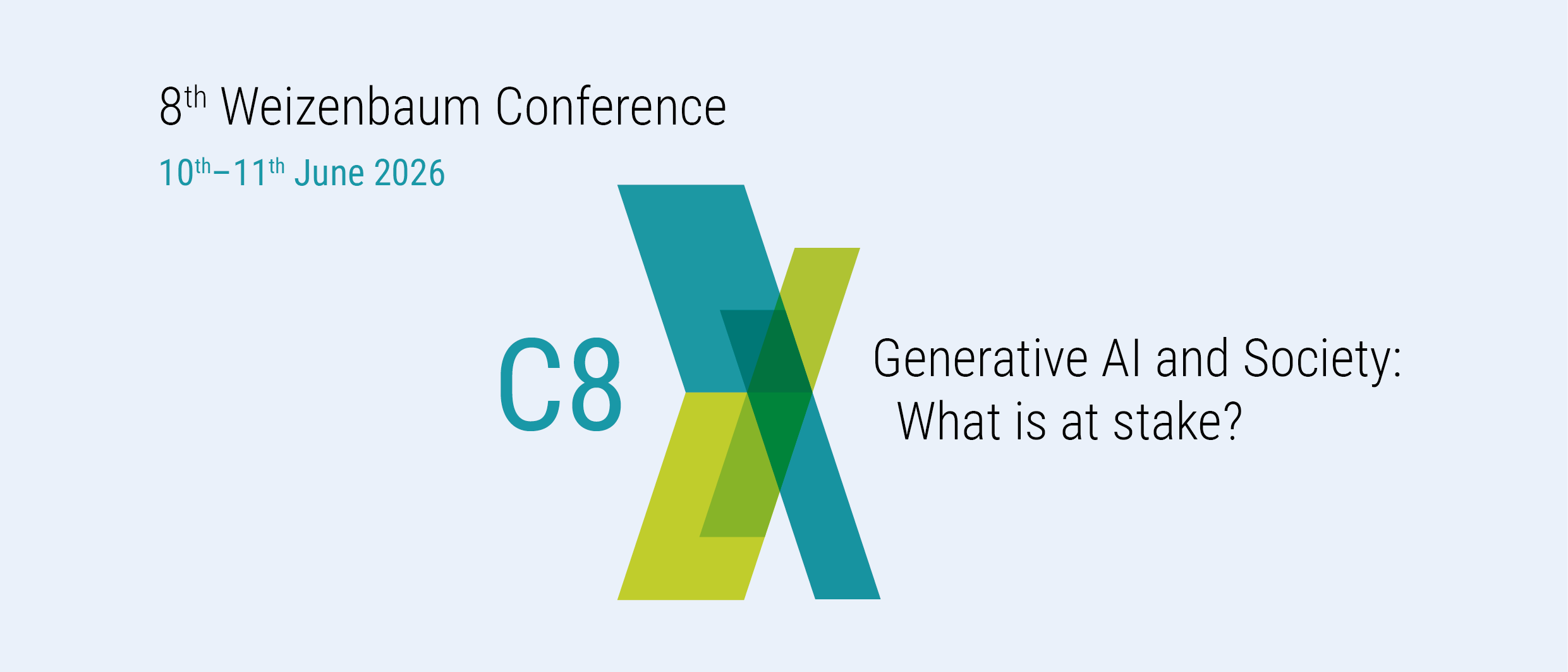About the Conference
Generative AI (GenAI) has permeated society instantly. The speed and manner in which it is constantly affecting more and more areas of social life is causing concern among societal, political, and economic actors: How to integrate GenAI in work routines and knowledge production, while avoiding its biases and pitfalls? How to use new technological options without becoming dependent on Big Tech? How to explore opportunities for societal progress, while AI systems are shaped by strong power relations?
Yet, since the release of GenAI, society has had little time to adapt to these new developments, and so has research. While there is no lack of early experimental studies and speculation, a sound assessment of the impact of these developments on power relations and inequalities, the transformation of work, and new developments in knowledge production is still missing. Also, the scientific community itself is grappling with this new technology within its own field.
The Weizenbaum Conference 2026 seeks to convene research from various disciplines on how GenAI affects society. In line with the work of Joseph Weizenbaum, himself a pioneer of AI research, the conference focuses on the relationship between technology and societal values and the challenges posed by the spread of GenAI to political power relations, the economy, and the workplace as well as to common knowledge, academic research, or artistic originality and copyright. As the introduction of GenAI cuts across boundaries between diverse social fields such as academia, civil society, culture, the economy, and politics we invite contributions from different disciplines and particularly with a trans- or interdisciplinary background for presenting, discussing, and understanding the impact of GenAI in a comprehensive way.
About the Weizenbaum Institute
The Weizenbaum Institute conducts excellent, independent, interdisciplinary and fundamental digitalization research. It provides politics, business and civil society with well-founded findings and value-based recommendations for action and helps to ensure that digitalization and networking are not only better understood, but can also be shaped in a sustainable, self-determined and responsible manner.
The Weizenbaum Institute is supported by a research network from Berlin and Brandenburg, which includes Freie Universität Berlin (FU Berlin), Humboldt-Universität zu Berlin (HU Berlin), Technische Universität Berlin (TU Berlin), Universität der Künste Berlin (UdK), Universität Potsdam (UP), as well as the Fraunhofer Institute for Open Communication Systems (FOKUS) and the Berlin Social Science Center (WZB). The Weizenbaum Institute was founded in 2017 and is funded by the Federal Ministry of Education and Research and the State of Berlin. It was named after the German-American computer science pioneer and critic Joseph Weizenbaum.

